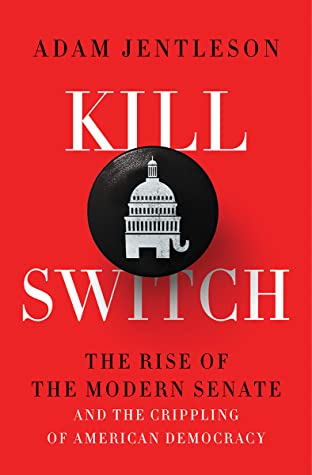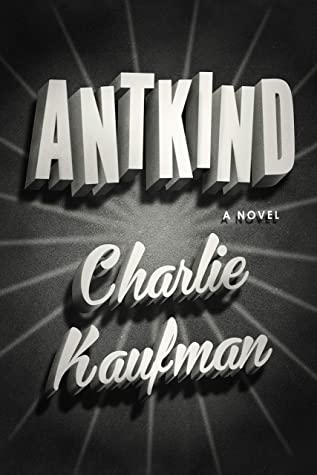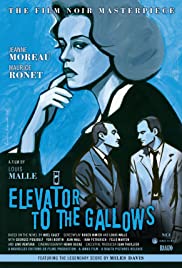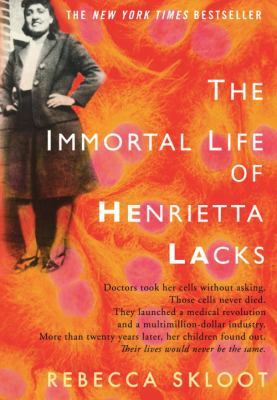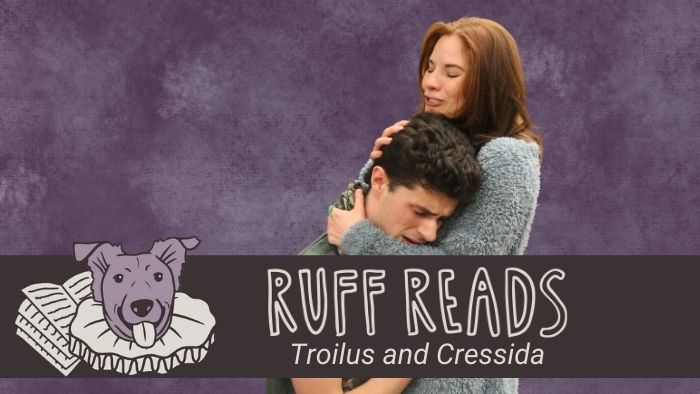
Title: Troilus and Cressida
Rating: 4 Stars
As I’ve mentioned before, one of the things that I have really missed during the pandemic is live performances. I’ll take anything at this point, so when I heard that Seattle Shakespeare was offering up what basically mounted to a live virtual table read of Troilus and Cressida, I was on it. It’s one of Shakespeare’s lesser known plays. I’ve never seen it performed live. In fact, I’m not sure if I’ve even seen it offered live anywhere. Seattle Shakespeare is making its way slowly through all of Shakespeare’s plays, so I have already had opportunities to see obscure plays like Titus Andronicus and Timon of Athens. I wasn’t going to miss this.
They were planning on performing it live until the pandemic hit, so it’s not really fair to call it a table read. Not all of the original cast was able to perform, so there were some that were pretty clearly reading from a script, but for the most part, it was a pretty polished presentation, albeit with no costumes whatsoever and in the actors’ homes.
It was performed over Zoom. I do find it amusing to see the characters’ name appear in their respective Zoom window (it actually is quite helpful). Seeing Achilles, Agamemnon, and Ulysses all labeled and speaking in Zoom windows like they’re in a corporate staff meeting makes me realize how the Trojan War would have been fought in the year 2021. Being held over Zoom, it goes without saying that one of my favorite lines from the play is, “Nestor, thou art on mute.” Oh boy, Nestor, can I relate.
Troilus and Cressida is an odd play. That possibly might be one of the reasons why it’s not played often. It’s classified as one of Shakespeare’s problem plays (along with All’s Well That Ends Well (which Seattle Shakespeare also staged not that long ago) and Measure for Measure).
The main problem with Troilus and Cressida is…what is it? Is it a love story about Troilus and Cressida? Well, except that Cressida gets separated by her forever love Trojan Troilus and promptly takes up with the Greek Diomedes. Is it a tragedy? Troilus and Cressida are still alive at the end, but the most noble character in the play, Hector, is dead. However, he dies at best ignominiously and he’s not really that significant of a character in the play. Is it a history? Despite the play being called Troilus and Cressida, the bulk of the plot is about the Trojan War, which is believed to be a historical event. Much like his other histories, after a lot of talking, in Act V there is certainly a significant amount of fighting. Still, if anything, it feels more like mythology than history. Is it just a comedy? You wouldn’t think so, but Thersites is possibly the greatest insult comic that Shakespeare ever invented and Greek’s great hero Ajax is as dumb as a box of rocks.
It simply is all over the map, and in my opinion, this plot anarchy kind of falls to pieces in Act V. There are just too many things going on and it doesn’t tie them all together by the end.
There are a couple of plot threads. One of them is the love story between the Trojan Troilus and Cressida. Troilus is hopelessly in love and Cressida plays hard to get. It takes the contrivances of Pandarus to bring the two together (and thus from his name, the verb to pander originates). Alas, as soon as they share their bliss, Cressida’s father, who has betrayed the Trojans and is now in the Greek camp, makes a deal to swap a prisoner for his daughter so that he won’t be alone in the camp. With both brokenhearted, Cressida leaves to be with her father. Shortly thereafter, while Troilus is spying on her, she takes up with the Greek Diomedes, sparking Troilus’ great jealous rage.
The other plot thread is the Trojan War itself. As is well known, the Trojan Paris kidnapped the Greek King Menelaus’ wife Helen and brought her to Troy. The Greeks have laid siege to Troy to win her back. They’ve been at it for seven years with little result. In fact, they’ve barely been fighting. When wondering why, all point to the great Greek hero Achilles, who is languidly refusing to fight. His refusal has infected the rest of the Greek troops. How can Agamemnon and the wily Ulysses conspire to get Achilles motivated to fight again?
That’s the gist of it. Since Shakespeare wasn’t really into the whole plot invention business, most of the basic plot was lifted directly from Chaucer. Before you feel too bad about Chaucer, he stole his plot from Boccaccio. That’s the way playwrights rolled in those days. If Shakespeare was alive today, he’d be rebooting Spider-Man.
As is typical before I watch Shakespeare, I read the play the day before. That really helps me to get level set on the plot so that I can pay more attention to the language. Having done that consistently, the difference between reading the words flat on the page versus acted out, even in a table read, becomes stark. It really is night and day.
The actor playing Thersites was hilariously acidic while spewing his venom. Ajax was a dumb bodybuilder, constantly flexing while alternating between befuddlement and steroidal rage. Ulysses, not a warrior, was playing three dimensional chess with his cunning ways. Paris and Helen spent their time clubbing. Pandarus was an oily, lecherous, snivelly pander.
Achilles, that great Greek warrior legend, does not come off well here, especially in comparison to his Trojan counterpart Hector. Hector was all grace, bravery, and honor. Here Achilles was slightly smarmy, living off the laurels of his previous heroics.
When they finally do first meet in battle, Hector refuses to engage Achilles because Achilles is not armed. It would not be honorable to fight an unarmed man. Later, when Achilles and his collection of myrmidon warriors come upon Hector while he is changing armor, there is no such honor. Not only does Achilles take advantage of Hector’s disadvantage, but he doesn’t even do the deed himself. He orders his myrmidons to close in and kill him. After they kill him, then Achilles ties Hector’s dead body to his horse and drags his corpse around the battle field for all of Troy to see. What a great warrior.
In Goodreads, I gave the play three stars. The live staging of it raised it to four stars.
I can’t wait for live theater to start again!
